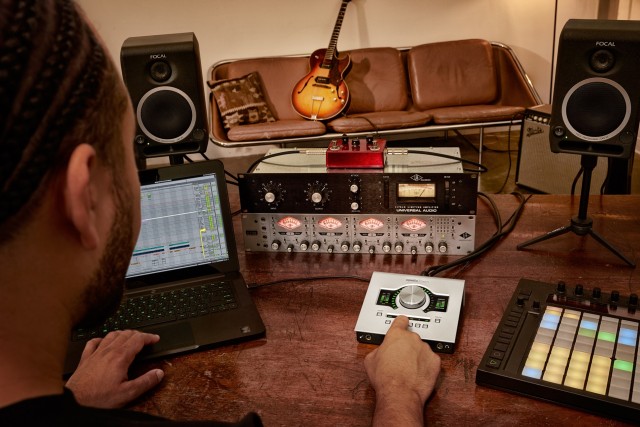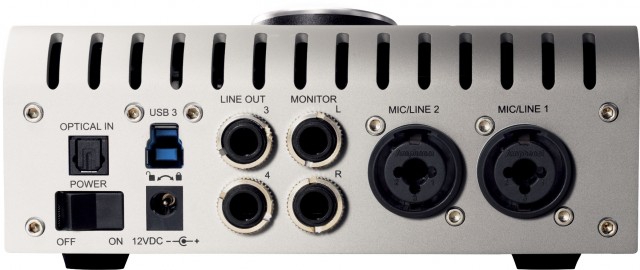If you’re a Windows user who’s been jealous of Universal Audio’s Apollo Twin interface and audio DSP platform, times are about to change.
For those of you just joining us, Universal Audio’s box is special in that it’s a compact, accessibly-priced entry into the UAD line. As an audio interface, it’s just one of the better pieces of gear out there (in terms of fidelity and reliability). And it runs all UAD’s top-notch plugins, too, opening up a window to a lot of analog emulation.
The Apollo Twin is a high-performance box, but it demands Thunderbolt – and it’s OS X only. The Apollo Twin USB DUO works over USB instead. You need USB3, Windows 7 or 8.1 or later.
The DUO gives you the DSP horsepower you need, and the whole package has an estimated street of US$899. For that, you get two channels of mic/line inputs, one of which is a Hi-Z instrument in, and six channels of outs (monitor, headphone, line 3-4), plus ADAT and S/PDIF ins. The price tag is hefty by audio interface standards, but this is a high-end interface with excellent pre’s that also runs DSP for signal processing.
And that’s especially useful on the Apollo Twin, in that you can track in real-time through UAD’s plug-ins. That means for singers and instrumentalists the ability to use the Apollo Twin as a creative studio tool or even onstage, adding compressors, EQs, preamp and guitar amp models, and tape simulations while you play, with sub-2ms latency. To me, this is what moves the needle from “kind of annoying to need a DSP platform to add effects” to “oh, that’s what hardware DSP is for.”
As with the Mac edition, you get some plug-ins to get you started – legacy versions of the LA-2A Classic Audio Leveler, 1176LN Limiting Amplifier, and Pultec EQP-1A Program Equalizer, plus Softube Amp Room Essentials, 610-B. “Legacy” as these may be, they’re good stuff – though if you really want to use the UA platform, be prepared for a not-insignificant investment in more plug-ins, even with various bundles.
The UAD plug-ins as always work for various hosts, including Pro Tools – you get VST, RTAS, and AAX 64 on Windows.
Now, the bad news: the USB version works only on Windows. I had hoped the Apollo Twin USB would be a way to shuttle a mobile interface between machines – for instance, it’s great to go the PC route for a desktop computer and then plug into a MacBook on the road. That’s not an option here. And that means you should take a hard look at some other high-end interfaces: RME’s, for instance, are cross-platform.
UA tells CDM that they did this in order to focus on Windows performance on the USB model, and Mac performance on the Thunderbolt model, rather than commit extra resources to making them cross-platform.
More:
And the associated plug-ins:
Previously:
Universal Audio’s Latest Audio Hardware, Software Comes of Age Nicely

